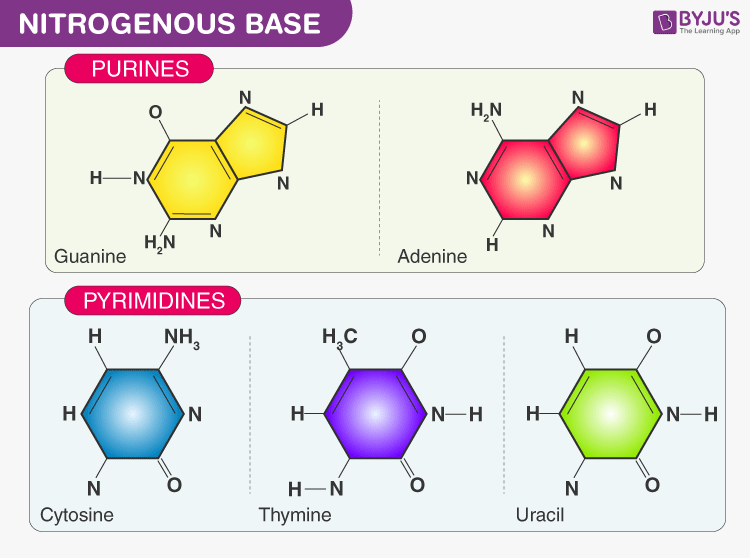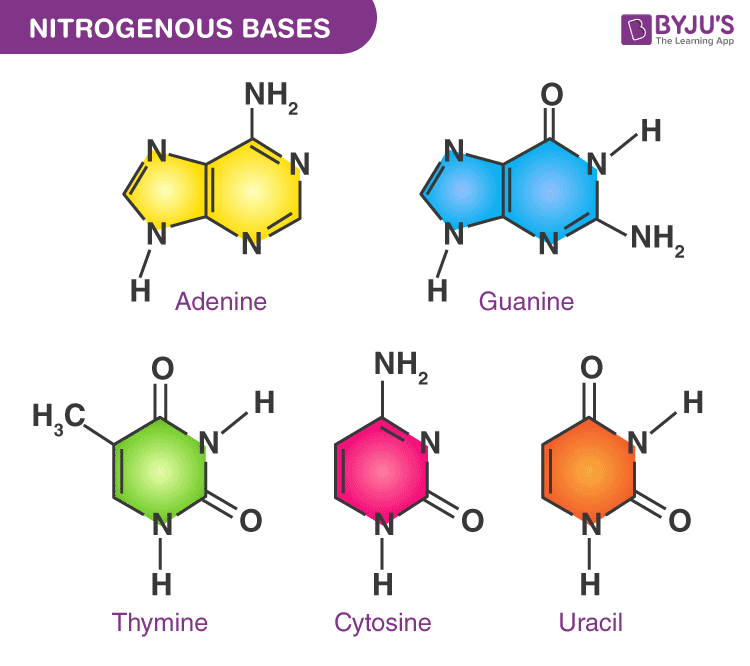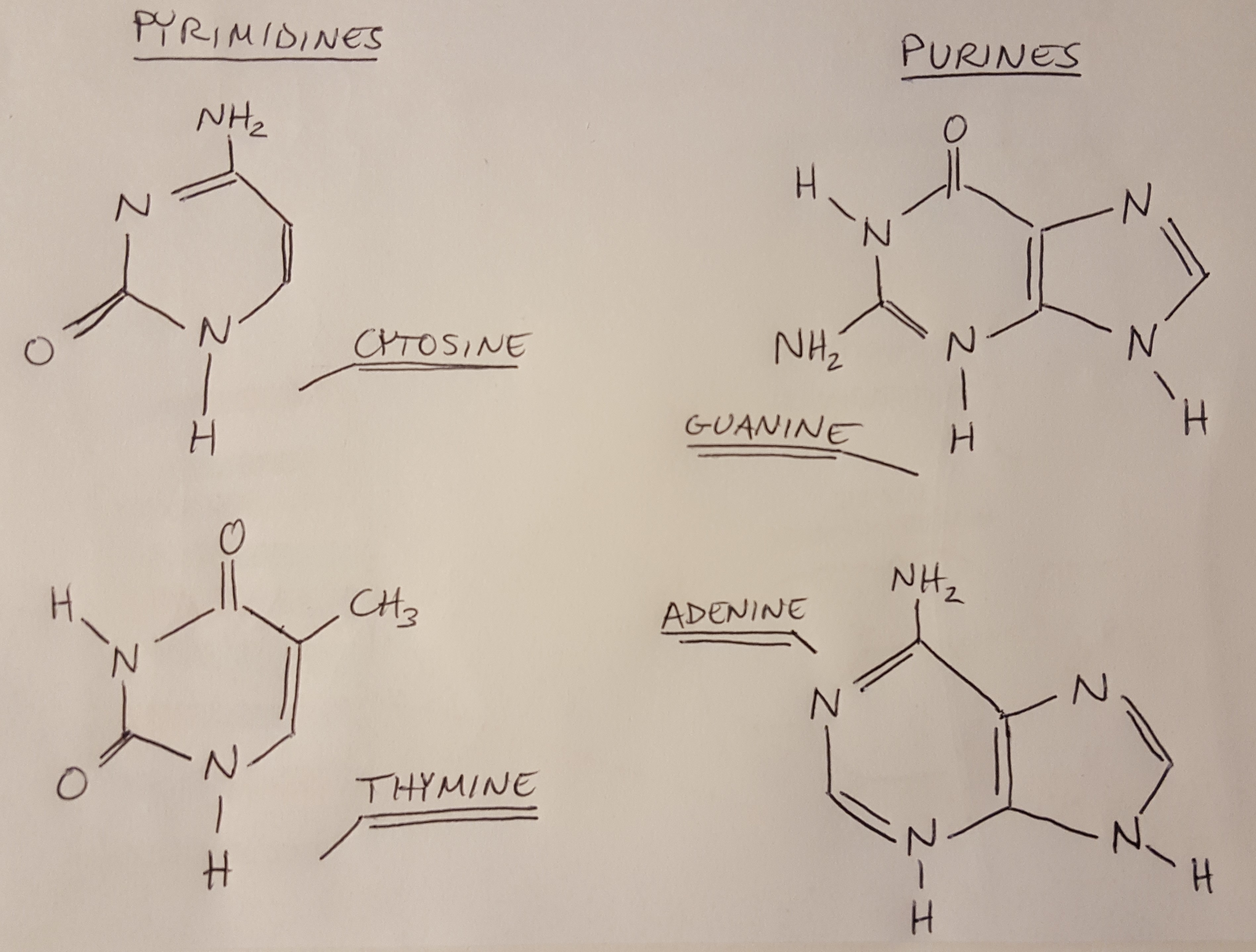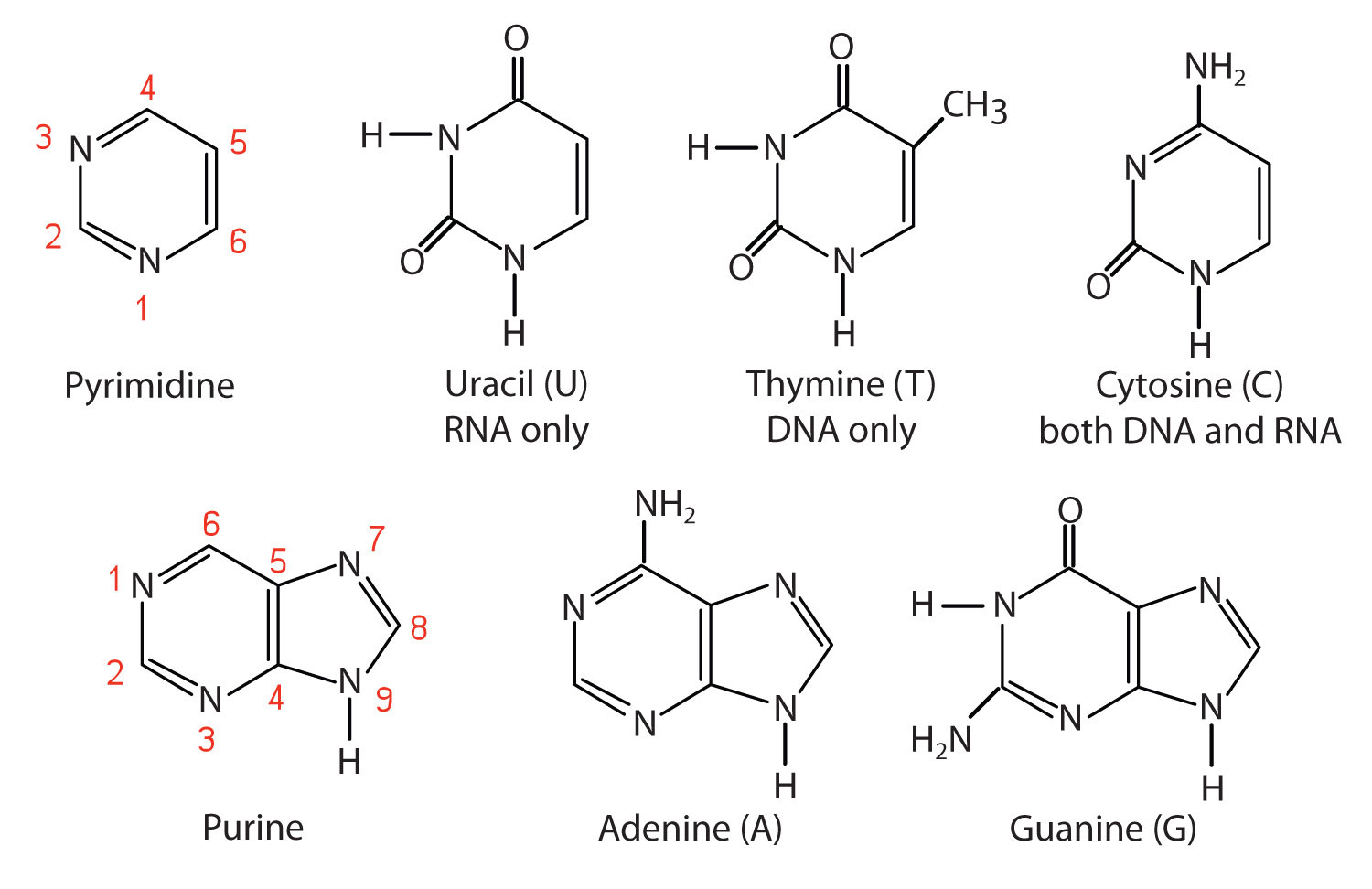What Are The Four Nitrogenous Bases Found In Rna
What Are The Four Nitrogenous Bases Found In Rna - Uracil is a pyrimidine that is structurally similar to the. What are the four nitrogenous bases found in rna? Adenine, cytosine, uracil, and guanine. Dna attains a secondary structure when hydrogen bonds form. Rna consists of four nitrogenous bases:
Rna consists of four nitrogenous bases: What are the four nitrogenous bases found in rna? Uracil is a pyrimidine that is structurally similar to the. Adenine, cytosine, uracil, and guanine. Dna attains a secondary structure when hydrogen bonds form.
What are the four nitrogenous bases found in rna? Dna attains a secondary structure when hydrogen bonds form. Adenine, cytosine, uracil, and guanine. Rna consists of four nitrogenous bases: Uracil is a pyrimidine that is structurally similar to the.
What Nitrogenous Bases Are Found in DNA? Get the Answer at BYJU'S NEET
Dna attains a secondary structure when hydrogen bonds form. Adenine, cytosine, uracil, and guanine. Rna consists of four nitrogenous bases: Uracil is a pyrimidine that is structurally similar to the. What are the four nitrogenous bases found in rna?
Nitrogen Base Definition In Biology at Mary Murphy blog
What are the four nitrogenous bases found in rna? Dna attains a secondary structure when hydrogen bonds form. Rna consists of four nitrogenous bases: Uracil is a pyrimidine that is structurally similar to the. Adenine, cytosine, uracil, and guanine.
Solved 14. What are the four nitrogenous bases found in RNA?
Rna consists of four nitrogenous bases: Adenine, cytosine, uracil, and guanine. Uracil is a pyrimidine that is structurally similar to the. What are the four nitrogenous bases found in rna? Dna attains a secondary structure when hydrogen bonds form.
Which Pair Of Nitrogenous Bases Will Form A Bond In A Dna Molecule
Uracil is a pyrimidine that is structurally similar to the. Adenine, cytosine, uracil, and guanine. What are the four nitrogenous bases found in rna? Rna consists of four nitrogenous bases: Dna attains a secondary structure when hydrogen bonds form.
RNA. Structure, Transcription and Editing Presentation Biology
What are the four nitrogenous bases found in rna? Rna consists of four nitrogenous bases: Adenine, cytosine, uracil, and guanine. Dna attains a secondary structure when hydrogen bonds form. Uracil is a pyrimidine that is structurally similar to the.
Types of Nitrogenous Bases In RNA Detailed Facts Lambda Geeks
What are the four nitrogenous bases found in rna? Adenine, cytosine, uracil, and guanine. Uracil is a pyrimidine that is structurally similar to the. Rna consists of four nitrogenous bases: Dna attains a secondary structure when hydrogen bonds form.
The Nitrogenous Bases Used In Protein Synthesis We Are Eaton
Rna consists of four nitrogenous bases: Uracil is a pyrimidine that is structurally similar to the. Dna attains a secondary structure when hydrogen bonds form. Adenine, cytosine, uracil, and guanine. What are the four nitrogenous bases found in rna?
shortcut to identify Nitrogenous bases(cytosine and co) r/Mcat
Rna consists of four nitrogenous bases: What are the four nitrogenous bases found in rna? Adenine, cytosine, uracil, and guanine. Uracil is a pyrimidine that is structurally similar to the. Dna attains a secondary structure when hydrogen bonds form.
Nitrogen Base Structure
Uracil is a pyrimidine that is structurally similar to the. What are the four nitrogenous bases found in rna? Rna consists of four nitrogenous bases: Dna attains a secondary structure when hydrogen bonds form. Adenine, cytosine, uracil, and guanine.
19.1 Nucleotides The Basics of General, Organic, and Biological Chemistry
Uracil is a pyrimidine that is structurally similar to the. Rna consists of four nitrogenous bases: What are the four nitrogenous bases found in rna? Dna attains a secondary structure when hydrogen bonds form. Adenine, cytosine, uracil, and guanine.
Adenine, Cytosine, Uracil, And Guanine.
What are the four nitrogenous bases found in rna? Rna consists of four nitrogenous bases: Uracil is a pyrimidine that is structurally similar to the. Dna attains a secondary structure when hydrogen bonds form.



.PNG)




